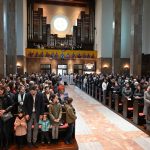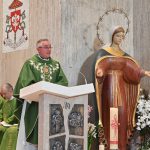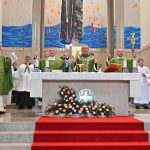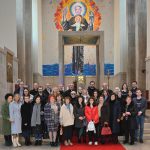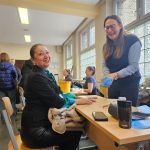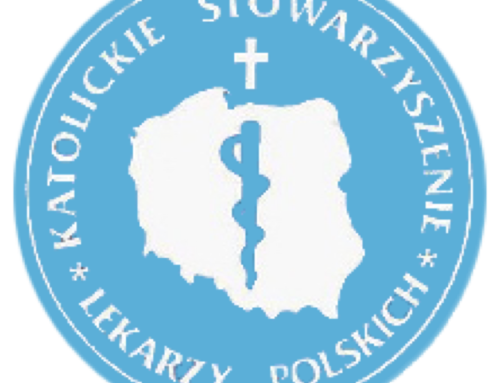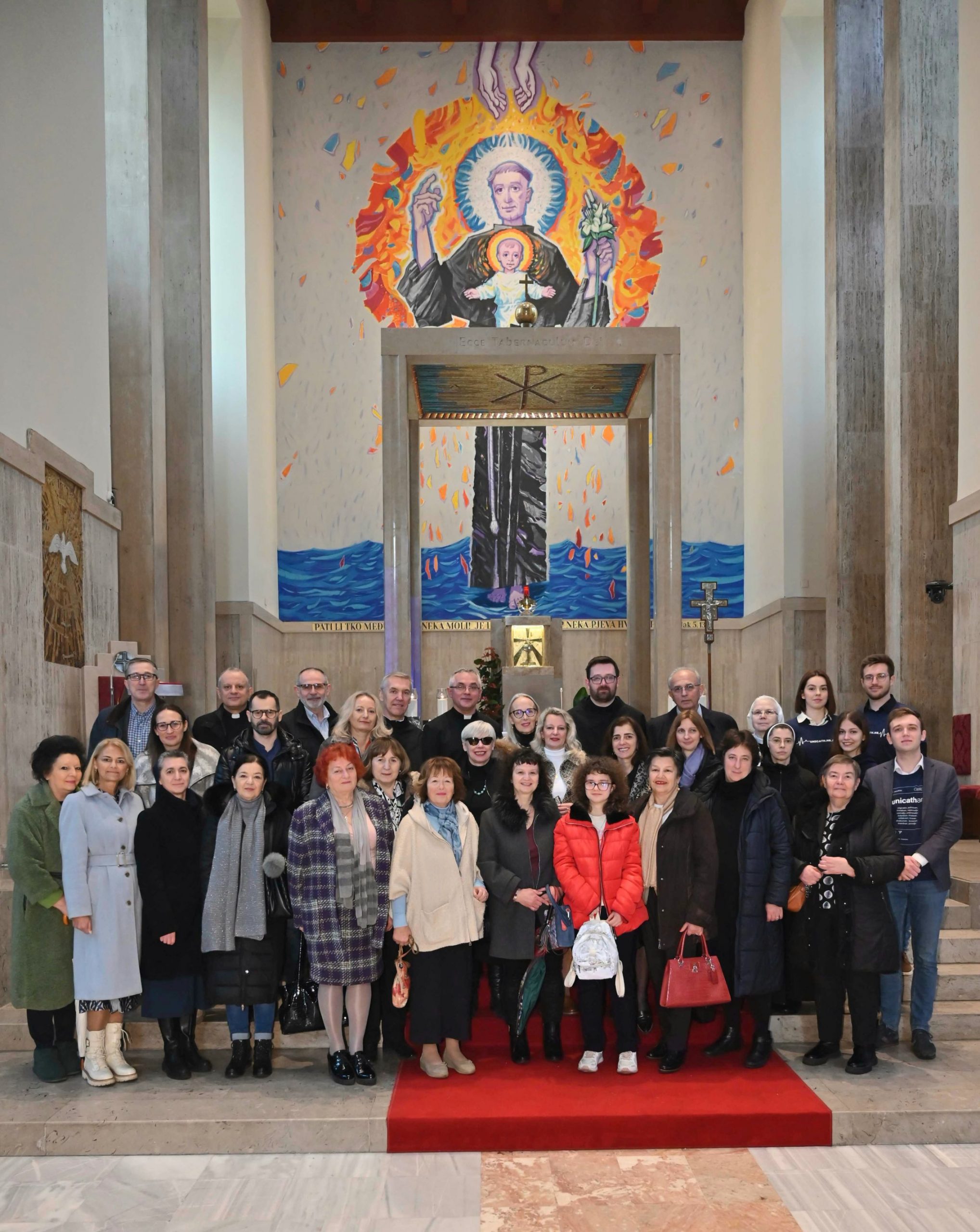
DAY OF THE SICK IN THE BASILICA OF ST. ANTON IN ZAGREB
On Sunday, February 11, 2024, in the Basilica of St. Anthony of Padua at the Holy Spirit in Zagreb, the commemoration of Our Lady of Lourdes and the World Day of the Sick are celebrated. They included in the prayers all sick persons, especially those who cannot participate in the prayer-liturgical-catechetical life of the Archdiocese due to illness. At the parish Holy Mass, the Croatian Catholic Medical Association (branch “Branimir Richter”-Zagreb), the Croatian Catholic Association of Nurses and Technicians, the Department of Nursing at the Croatian Catholic University, nurses, members of religious communities at the Croatian Religious Conference, headed by their The committee and Club “Nutrix”. After all the morning holy masses, in the “Antonio” catechetical hall, the faithful could meet the doctors and staff on duty, measure their blood pressure and sugar, and seek medical advice. The Pope’s message for the Day of the Sick was shared with everyone.
At the beginning of the Holy Mass, the parish priest and rector of the Basilica, Br. Ivan M. Lotar, greeted all those present, especially “all those whose day we celebrate today, which, in a broader context, is actually all of us: sick in body, spirit or soul. There is no person who has not experienced weakness, powerlessness and the severity of illness. People with disabilities and developmental difficulties and their families are especially in our prayers.”
The Holy Mass was celebrated by Father Ilija Grgić, head of the Missionaries of the Blood of Christ and clergyman of the Croatian Catholic Association of Nurses and Technicians, while in the concelebration, along with the Rector of the Basilica, were also the rector of the Croatian Academy of Sciences, Dr. Željko Tanjić, and the provincial Fr. Miljenko Hontić.
“I greet all of you who daily serve the good man created in the image and likeness of God, and at the same time bravely and courageously testify to the value of the gospel in times when, as St. Pavel, maybe sometimes it’s not convenient,” – pointed out Fr. Ivan.
In his homily, Father Grgić emphasized the importance of celebrating the World Day of the Sick, referring to the Gospel text of the Apostle Mark. The parable of Jesus’ healing of the leper is one of the explanations why St. John Paul II. established the World Day of the Sick. Holy Father John Paul II. he emphasized the supernatural dimension of illness and experiencing it, stressing the importance of the relationship between God and the patient. The reverend continued the Pope’s statement by saying that it is extremely important for the patient to accept his condition and find the courage to ask God for healing because God is always with all people and never leaves them. The leper from Mark’s Gospel is a symbol of all the sick and their suffering as they walk their way to recovery, he did exactly what Reverend Ilija emphasized was important, he accepted his illness and trusted in God to help him on his way to recovery .
At the end, Brother Ivan thanked everyone present: “Thank you to all of you named and, even more often unnamed, heroes of our hospitals and other health institutions. Especially to all hospital chaplains. Allow me to mention only our self-sacrificing and courageous brother Filip Musa, but also all his colleagues, who leave all their work, rest, and free time for every phone call from the hospital and rush to the patient in need. Thank you to all the medical staff who feel for the patients who need the priest’s blessing, absolution, communion and anointing of the sick, as well as all the family members who recognize the necessity of the priest’s arrival in time. Thank you to all of you who pray in and in front of hospitals and testify to your faith in the complexity of the times and society we live in! Thank you to everyone for the cooperation and organization of this beautiful event. Especially to the company “Medikor”, a representative of Omron devices, which generously lent devices and cards for recording blood pressure values, as well as to all the volunteers. Fraternal gratitude also goes to Mrs. Antonija Vukšić, our parishioner, for the idea and initiative.”
After the parish announcements, Prof. Danica Galešić Ljubanović, president of HKLD branch “Branimir Richter”-Zagreb, expressing her gratitude for the hospitality and briefly mentioning the history of celebrating the World Day of the Sick in Zagreb. She ended her speech with the words of Mother Teresa, Patron of the Nursing Department of the Croatian Catholic University: “Don’t wait for leaders; do it yourself, man to man”, thereby emphasizing the importance of doctors and nurses on the patient’s path to recovery. At the end of the holy mass, as a sign of gratitude to all present, she presented the rector, Brother Ivan, and the parish of St. Antuna’s work of art, a painting with the Moslavina landscape as a memory of this day.
THE POPE’S MESSAGE FOR THE WORLD DAY OF THE SICK
“It is not good for man to be alone” (Gen 2, 18). God, who is love, from the beginning created man for communion, inscribing in his being the dimension of relationships. Thus, in our life, shaped in the image of the Holy Trinity, we are called to full self-realization in the dynamics of relationships, friendship and mutual love. We were created to be together, not alone. And precisely because this plan of communion is so deeply inscribed in the human heart, the experience of abandonment and loneliness terrifies us and proves to be painful, even inhuman. It becomes even more difficult in moments of weakness, insecurity and uncertainty, often caused by a serious illness. (…)
With deep pain, I empathize with the suffering and loneliness of those who, due to the war and its tragic consequences, were left without support and help: war is the most terrible of all social diseases, and the weakest pay the highest price.
But it should be emphasized that even in countries that enjoy peace and prosperity, the age of old age and illness is experienced in solitude, and sometimes in abandonment. This sad reality is primarily the result of a culture of individualism, which glorifies the realization of income at any cost and nurtures the myth of efficiency, becoming indifferent and even ruthless when people no longer have the strength to keep up. It then becomes a culture of rejection in which “persons… are no longer perceived as a primary value that should be respected and preserved, especially if they are poor or disabled, if they are “not yet useful” – such as unborn or “no longer useful” – as which are older people” (Enc. Fratelli tutti, 18). Unfortunately, this logic also runs through certain political decisions, which do not place the dignity of the human person and human needs at the center, and which do not always favor strategies and the allocation of the necessary resources to guarantee every person’s fundamental right to health and access to medicines. At the same time, the abandonment of the weak and their loneliness also promotes the reduction of care exclusively to health services, without them being wisely accompanied by a “therapeutic alliance” between doctors, patients and family members.
It is worth listening once again to these words from the Bible: “It is not good for man to be alone!” God utters them at the beginning of creation and thus reveals to us the deep meaning of his plan for the human race, but, at the same time, also the mortal wound inflicted by sin, which it draws in and creates mistrust, discord, divisions, and thus isolation. It affects man in all his relationships: with God, with himself, with others, with the created world. Such isolation leads us to lose the meaning of our existence, robs us of the joy of love and makes us experience a depressing feeling of loneliness at all key periods of life.
Brothers and sisters, the first form of care we need in illness is closeness full of compassion and tenderness. Taking care of a sick person, therefore, means first of all taking care of their relationships, all relationships: with God, with others – family members, friends, health professionals – with the created world, with oneself. Is that possible? Yes, it is possible and we are all called to work hard to make it happen. Let’s look at the image of the Good Samaritan (cf. Lk 10, 25-37), his ability to stop and show closeness, the tenderness with which he sees the wounds of his suffering brother.
Let’s keep in mind this central truth of our lives: we came into the world because someone embraced us, we were created for love, we were called to fellowship and brotherhood. This dimension of our being supports us especially in times of illness and weakness and is the first therapy that we all must apply together in order to treat the diseases of the society in which we live.
To those of you who suffer from a temporary or chronic illness, I say: don’t be ashamed of your desire for closeness and tenderness! Don’t hide it and don’t ever think that you are a burden to others. The state of illness encourages everyone to stop the excessive pace in which we are immersed and find ourselves again.
In this changing epoch in which we live, we Christians are especially called to adopt the compassionate view of Jesus. We care for those who are suffering and who are alone, perhaps even marginalized and rejected by society. We heal the wounds of loneliness and isolation with the mutual love that Christ the Lord gives us in prayer, and especially in the Eucharist. And so let’s unitedly oppose the culture of individualism, indifference, rejection and develop a culture of tenderness and compassion.
The sick, the weak and the poor are at the center of the Church and must also be at the center of our human attention and our pastoral efforts. We must not forget that! Let us trust the Blessed Virgin Mary, the Health of the sick, to intercede for us and help us to be creators of closeness and fraternal relations.
Photo: Badrov
